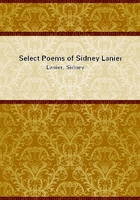
第64章 CHAP. XIX.(9)
Whether they are herein made the tools of cunninger workmen, to pull down their own fabric, they were best look. This I am sure, their civil policy is so new, so dangerous, and so destructive to both rulers and people, that as former ages never could bear the broaching of it; so it may be hoped, those to come, redeemed from the impositions of these Egyptian under-task-masters, will abhor the memory of such servile flatterers, who, whilst it seemed to serve their turn, resolved all government into absolute tyranny, and would have all men born to, what their mean souls fitted them for, slavery.
Sec. 240. Here, it is like, the common question will be made, Who shall be judge, whether the prince or legislative act contrary to their trust? This, perhaps, ill-affected and factious men may spread amongst the people, when the prince only makes use of his due prerogative. To this I reply, The people shall be judge; for who shall be judge whether his trustee or deputy acts well, and according to the trust reposed in him, but he who deputes him, and must, by having deputed him, have still a power to discard him, when he fails in his trust? If this be reasonable in particular cases of private men, why should it be otherwise in that of the greatest moment, where the welfare of millions is concerned, and also where the evil, if not prevented, is greater, and the redress very difficult, dear, and dangerous?
Sec. 241. But farther, this question, (Who shall be judge?)cannot mean, that there is no judge at all: for where there is no judicature on earth, to decide controversies amongst men, God in heaven is judge. He alone, it is true, is judge of the right.
But every man is judge for himself, as in all other cases, so in this, whether another hath put himself into a state of war with him, and whether he should appeal to the Supreme Judge, as leptha did.
Sec. 242. If a controversy arise betwixt a prince and some of the people, in a matter where the law is silent, or doubtful, and the thing be of great consequence, I should think the proper umpire, in such a case, should be the body of the people: for in cases where the prince hath a trust reposed in him, and is dispensed from the common ordinary rules of the law; there, if any men find themselves aggrieved, and think the prince acts contrary to, or beyond that trust, who so proper to judge as the body of the people, (who, at first, lodged that trust in him) how far they meant it should extend? But if the prince, or whoever they be in the administration, decline that way of determination, the appeal then lies no where but to heaven; force between either persons, who have no known superior on earth, or which permits no appeal to a judge on earth, being properly a state of war, wherein the appeal lies only to heaven; and in that state the injured party must judge for himself, when he will think fit to make use of that appeal, and put himself upon it.
Sec. 243. To conclude, The power that every individual gave the society, when he entered into it, can never revert to the individuals again, as long as the society lasts, but will always remain in the community; because without this there can be no community, no common-wealth, which is contrary to the original agreement: so also when the society hath placed the legislative in any assembly of men, to continue in them and their successors, with direction and authority for providing such successors, the legislative can never revert to the people whilst that government lasts; because having provided a legislative with power to continue for ever, they have given up their political power to the legislative, and cannot resume it. But if they have set limits to the duration of their legislative, and made this supreme power in any person, or assembly, only temporary; or else, when by the miscarriages of those in authority, it is forfeited; upon the forfeiture, or at the determination of the time set, it reverts to the society, and the people have a right to act as supreme, and continue the legislative in themselves; or erect a new form, or under the old form place it in new hands, as they think good.
FINIS.